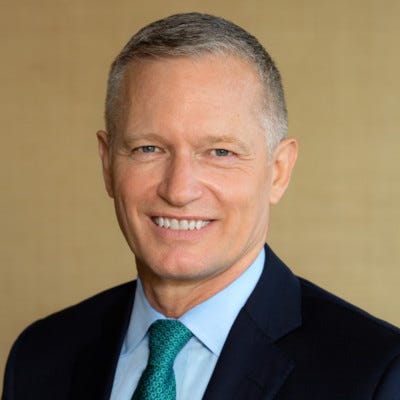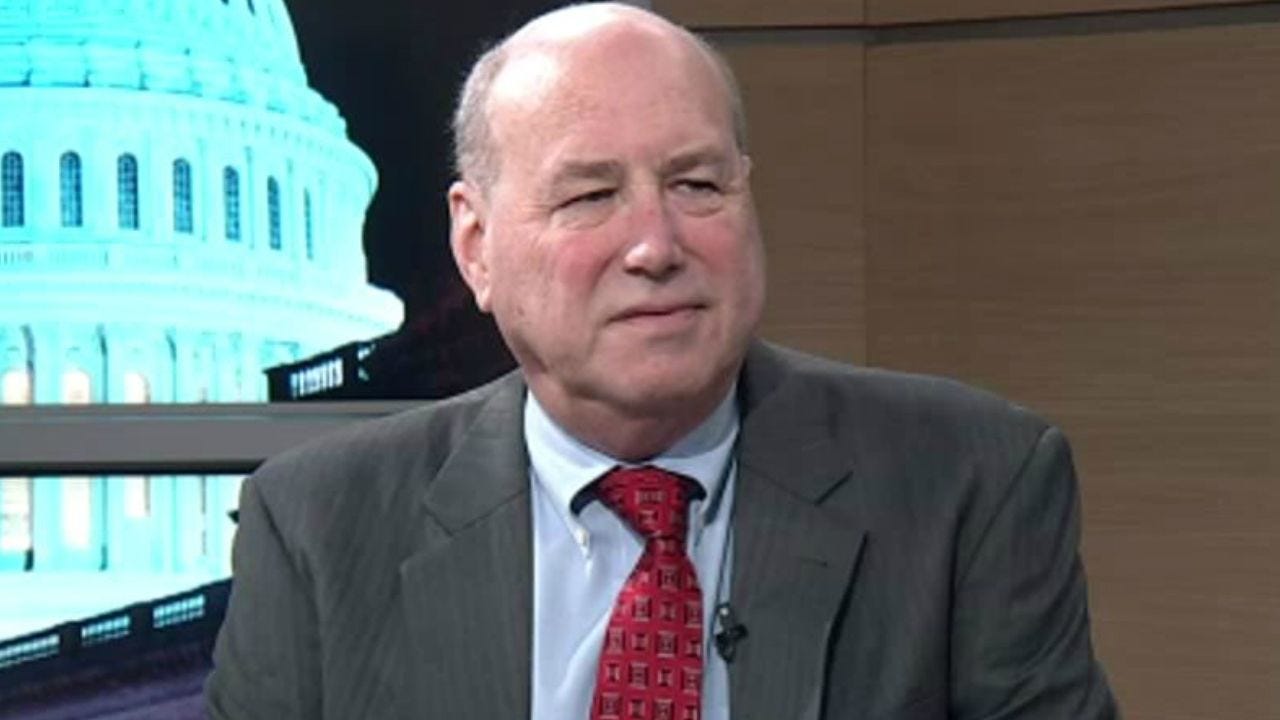Root cause
Those who reject the American founding are not American conservatives
In this season of Thanksgiving, we Freedom Conservatives express our gratitude for the American founding.
We’ve grateful to our country’s first president, George Washington, for issuing the first Thanksgiving Day proclamation. We’re grateful for the leadership he and other Founders supplied during the Revolutionary War and the early years of our new republic. And we’re grateful to live in a nation “conceived in liberty,” as Abraham Lincoln so memorably put it, dedicated to the proposition that all human beings are equal under the eyes of God and the laws of men.
Not everyone agrees. Prominent progressives and populists criticize the core principles of the American founding. “More and more people on the Left and Right reject the distinctive creed that made America great,” we wrote in the Freedom Conservatism Statement of Principles, “that individual liberty is essential to the moral and physical strength of the nation.”
FreeCons have long defended this proposition from progressives. Now we find ourselves defending the American founding from nationalists and populists who reject the individual-rights language of the Declaration of Independence and the careful balance of legislative, executive, judicial, and state powers struck in the United States Constitution.
We believe the very purpose of American conservatism is to conserve the blend of civic republicanism and classical liberalism that launched the American experiment. To put it plainly: those who reject the ideas and institutions of our nation’s founding may well be called conservatives if they live in Europe or some other foreign land. But they have cast themselves out of America’s conservative movement.
The hundreds of leaders who’ve signed the FreeCon statement strongly believe that to ensure America’s best days are ahead, we must apply the timeless principles of liberty to the challenges of the 21st century.
We’ve committed ourselves to restoring fiscal responsibility, fostering equal opportunity, and reducing the cost of living for American households through competitive markets, greater individual choice, and free trade with free people, while upholding the rule of law, property rights, freedom of contract, and freedom of association.
If you work within the conservative movement in some capacity — public policy, journalism, education, scholarship, litigation, activism, or civic leadership — you are welcome to sign the FreeCon statement.
If you don’t work in the movement but share our views, we hope you’ll join the FreeCon cause as a follower, promoter, and ally. Please subscribe to this Substack and follow our accounts on Facebook, X, and LinkedIn. Please tell your colleagues and friends about us.
And if you don’t share our views, we hope you’ll keep reading us, anyway. We hope to persuade you that the only American conservatism worthy of the name — and the only conservatism capable of competing with the Progressive Left and Populist Right — is one that seeks to conserve the guiding principles and abiding institutions of the American founding.
Today we feature the work of FreeCons who are doing just that.
Wake-up call
Christopher Long is a managing director for consultant and client relations at Silvercrest Asset Management Group. He’s also a FreeCon signatory.
Long previously served as CEO and co-owner of hedge fund advisor Endowment Capital Group, L.P., and chief operating officer of Friess Associates, LLC, and treasurer of its Brandywine Funds.
He has served on the boards of the Library of Congress Trust Fund, the Philadelphia Society, the Council for National Policy, the Wilmington Renaissance Corporation, Saint Edmond’s Academy, and Marion T. Academy Charter School.
Long formerly served as president and CEO of the Intercollegiate Studies Institute and remained on its board for many years. Earlier this month, however, he resigned from the ISI board, as did former chairman of the board Thomas Lynch.
In an “Open Letter to the Conservative Movement,” Long and Lynch related their attempts to keep the institute focused on educating the next generation of Americans about core principles of conservatism. Instead, ISI and other “venerable institutions have been infiltrated and quietly taken over,” they wrote, “by a tight-knit, fringe group of post-liberal thinkers who believe America has been ‘off the rails’ since the Founding.”
One recent ISI program, for example, promoted without significant challenge the views of Curtis Yarvin, a “self-described neo-reactionary, unapologetic monarchist, and a leader of the Dark Enlightenment movement who advocates for ‘rebooting’ and replacing liberal democracy.”
Yarvin has said that “if Americans want to change their government, they’re going to have to get over their dictator phobia” and that “although I am not a white nationalist, I am not exactly allergic to the stuff.”
Long and Lynch concluded their open letter with a warning: “Traditional conservatives who believe in America’s founding principles and look back at the Reagan Revolution as a step in the right direction need to wake up and understand the battle currently underway.”
“We hope our experience will serve as a wake-up call that the integrity and longstanding values of conservative institutions are being systematically and intentionally undermined by post-liberals who promote a ‘no enemies to the right’ mindset.”
Decry radicalism
Justin Stapley is director of the Utah Reagan Caucus and a FreeCon signatory.
A visiting fellow in higher education at the Foundation for Research on Equal Opportunity, Stapley serves in the Army National Guard and edited the Freemen News-Letter.
In a recent op-ed for the Las Vegas Review-Journal, he argued that neither progressives nor populists are “concerned with the bedrock principles of the American nation.”
“Liberty, equal justice, federalism, constitutionally limited governance, checks and balances on power, the rule of law … increasingly the national debate is not about how to secure such values but upon which grounds such things should be abandoned.”
A healthy American Right must be grounded in conservatism, Stapley continued, just as a healthy Left elevates liberal principles over progressive abuses of power.
“In the year we commemorate the 250th anniversary of our independence, let us hope we can find a way to break free into intellectual independence and discover the wherewithal and backbone to decry radicalism wherever we find it, both on the Left and on the Right, and choose a different path, an upward path to the renewal of the American dream and the restoration of a constitutional republic.”
Best way forward
Art Pope is chairman of Variety Wholesalers, a family-owned retail company operating more than 600 stores and employing some 14,000 people. He’s also a FreeCon signatory.
Pope is chairman of the John William Pope Foundation, a board member and former chairman of the Lynde and Harry Bradley Foundation, a board member and former chairman of the Institute for Humane Studies, and a board member at Advancing American Freedom and the Economic Policy Innovation Center, among other organizations.
A former four-term member of the North Carolina House of Representatives, he also served as state budget director and currently serves on the University of North Carolina Board of Governors.
Earlier this month, the National Review Institute presented Pope with the William F. Buckley Prize for Leadership in Supporting Liberty. In an acceptance speech, he argued that a conservative movement committed to America’s founding principles is needed today more than ever.
“Our shared principles — those of the Sharon Statement and the more recent Freedom Conservatism Statement — are deeply rooted in the American experiment itself,” Pope said.
Rather than “respecting the unalienable equal rights of the people,” he continued, both “the progressive-socialist left and the nationalist-populist right” seek to “impose government solutions, each confident that it can govern better than the other.”
“I firmly believe the best way forward — the way to preserve and expand American greatness — is for conservatives to champion freedom and virtue, individual liberty and social order, and a limited but effective government that performs only those essential tasks for which it was designed,” Pope concluded.
“Beyond that, we must not simply allow but respect the rights, the freedom, of individuals, families, businesses, religious congregations, communities, and other institutions of civil society to function and flourish.”
In the mix
• At The Blaze, FreeCon signatory David Bahnsen argued that Republicans won’t effectively counter the resurgence of socialistic thinking by peddling their own versions of central planning and government stakes in economic enterprises.
“We cannot attack [Zohran] Mamdani’s economic program while pushing our own price controls, government takeovers, and redistribution schemes,” wrote Bahnsen, founder and chief investment officer of the Bahnsen Group. “A movement that refuses to defend free enterprise won’t defeat socialism. It won’t even understand the threat.”
“A movement confident in free enterprise can beat socialism — first in the arena of ideas, then at the ballot box. But only if we choose clarity over imitation.”
• In the Magnolia Tribune, FreeCon signatory Kimberly Ross urged conservative leaders to act boldly and with dispatch.
“A ’big tent’ approach sounds good when you want your side to be more popular than your political enemies,” wrote Ross, a regular contributor to the Tribune and the Washington Examiner. “But welcoming everyone and everything means that before long, your group will become infected.
“When bad ideas take hold and find a fertile ground in which to grow, they become difficult to remove. Furthermore, they start to feel regular and routine. The extremes don’t feel so extreme. By then it’s too late to make a decisive about-face.
“The time to draw a clear line in the sand is now. It doesn’t matter if those spouting conspiratorial nonsense or antisemitism are disliked by those we also count as our enemies. The enemy of our enemy is not automatically our friend.”
• At Reason, FreeCon signatory Ed Tarnowski described current opposition to driverless cars and observed that history is “littered with failed attempts to resist technological progress — efforts now proven absurd.”
“Civilization didn’t cave when the Luddites resisted textile mechanization in the early nineteenth century,” wrote Tarnowski, senior contributor at Young Voices and policy and advocacy director at EdChoice, “nor did it cave when unions representing gaslight and horse-drawn carriage workers resisted electric lighting and automobiles.”
“We should not allow contemporary Luddites to thwart the unfolding progress of humanity,” he concluded. “To fully realize human flourishing, America must embrace the future — not fear it.”
• In the New York Post, FreeCon signatory Jim Copland urged the Securities and Exchange Commission to issue a rule keeping index-fund managers from using other people’s retirement savings to advance political causes.
“For too long, left-wing activists have used corporate annual meetings as a workaround to push policies they could never get through Congress,” wrote Copland, a Manhattan Institute senior fellow and member of the SEC’s Investor Advisory Committee.
“If the White House acts, it can shut down this backdoor political machine and return corporate America to its real job: creating value for workers, retirees, and everyday investors.”
• In Governing magazine, FreeCon signatory Eric Cochling explained how conservative leaders at the state level are reforming safety-net programs to make work requirements for Medicaid, SNAP, and other benefits more successful.
“While the U.S. welfare system helps our neighbors in need survive, it does little to help them thrive,” wrote Cochling, chief program officer and general counsel at the Georgia Center for Opportunity and a former legislative staffer.
“The safety net often traps individuals and families, rendering many unable to break the cycle of dependency. A good job offers more than just a paycheck — it provides purpose and stability and serves as one of the strongest shields against poverty.”



